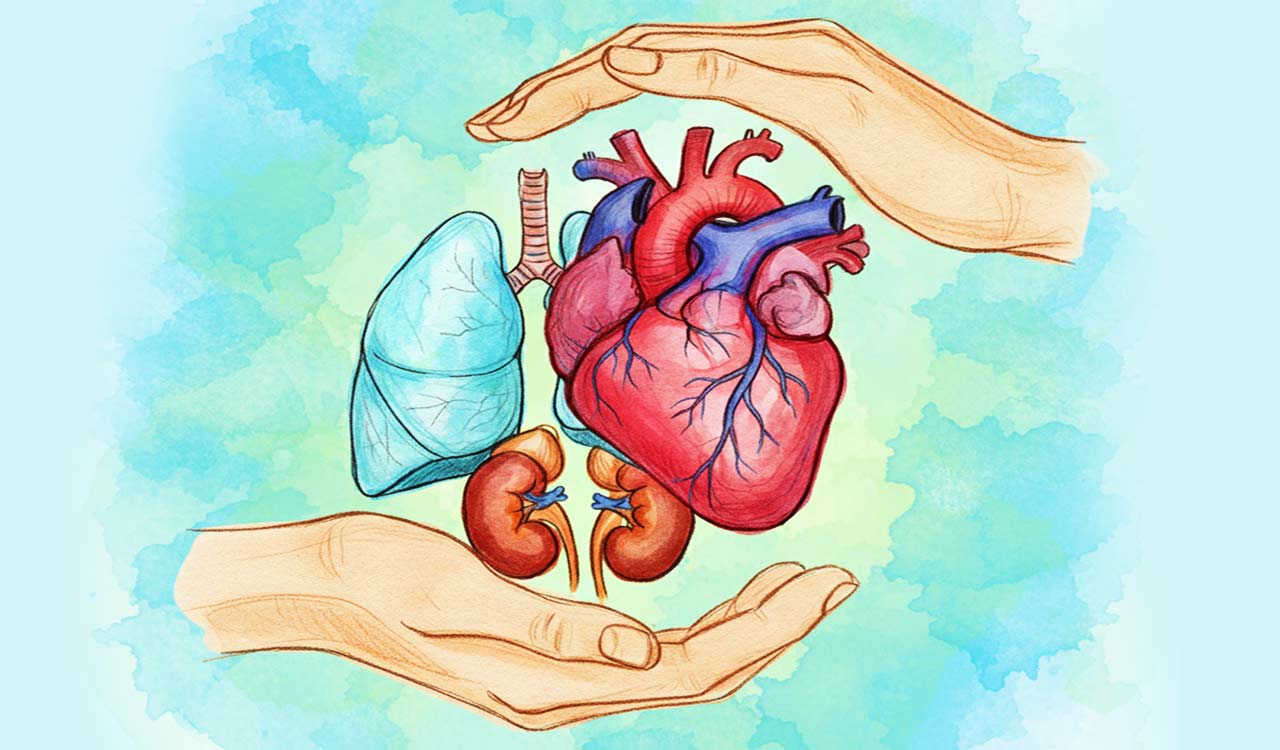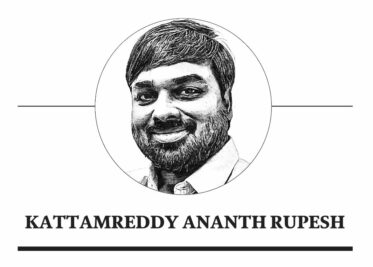Opinion: Organ donation in India — Life beyond death needs trust
A credible national policy that supports donor families, and an active central government role can bridge India’s trust gap in organ donation

By Kattamreddy Ananth Rupesh
Despite progressive legislation, policy reforms, and decades of advocacy, India continues to record a deceased organ donation rate of less than 1 per million population (pmp). In contrast, Spain — with strong state support, public trust, and presumed consent policies — has 52.6 donors per million population, positioning the country as a global leader in organ donation.
Also Read
Every August, the world turns its attention to the cause of organ donation — whether it’s India’s National Organ Donation Day on August 3 or global campaigns like the Organ Transplant Alliance’s Awareness Day on August 13, the focus shifts, albeit briefly, to the noble resolve of giving life beyond death.
However, beyond the banners and well-meaning slogans, there lies a troubling reality in India that warrants deeper contemplation. India’s organ transplant system remains marred by bureaucratic inefficiencies, ethical inconsistencies, and a widening trust gap between the public and the healthcare ecosystem.
A Ray of Hope
Still, India has made notable progress in organ transplantation, especially in live kidney and deceased donor transplants. Telangana was one of the top-performing States in the country in 2024 with a donor rate of 4.88 pmp, driven by its Jeevandan programme, which facilitated 725 transplants from 188 brain-dead donors; nearly 20 per cent of the national total. Tamil Nadu has also remained a consistent performer, thanks to strong government backing, dedicated medical teams, and growing public trust.
What sets Tamil Nadu apart is that a majority of transplants are performed in government hospitals, unlike most other States, instilling public confidence that organ donations are handled ethically and not misused for private gain. Brain stem death certification is a critical step in facilitating organ donation and is most commonly applicable in cases of fatal road accidents, which are often handled in public hospitals.
Therefore, it’s imperative that States strengthen and expand the process of brain death certification under their state organ transplant programmes in public hospitals. By doing so, more potential donors can be identified and utilised effectively, even in the absence of a fully equipped transplant infrastructure in every government hospital.
Fragmented Framework
The Transplantation of Human Organs and Tissues Act (THOTA), though well-meaning, is inconsistently applied across India. In many States, approval processes for both cadaveric and live transplants are slow and bureaucratic. Brain stem death certification often involves excessive paperwork and multiple approvals, leading to delays and missed donation opportunities. While oversight is important, States must also enable quicker approvals and direct communication between stakeholders.
Telangana’s surge in organ donation followed active government mobilisation, with awareness campaigns reaching village panchayats
In addition, the Act must be technically updated to reflect medical advancements. The current reliance on the gold standard apnoea test can be risky or unfeasible in many cases. Ancillary tests such as cerebral angiography, CT angiography, transcranial Doppler, and radionuclide perfusion scans offer safer, faster, and objective confirmation of brain death. These are widely used globally and should be integrated into the legal framework. Doing so would reduce delays in brain death declaration and strengthen the scientific basis.
Ethical Blind Spots
A major concern for donor families is the perception that their loss is being monetised, especially since the private healthcare sector performs the majority of transplants, raising suspicions of conflicts of interest, hidden costs, and profiteering, often with valid reasons. One unresolved ethical dilemma is the lack of a uniform policy on whether hospitals should waive the entire treatment bill after brain death is declared.
While many hospitals stop charging after the first brain stem death declaration, waiving the full bill could be seen as an incentive to persuade families into organ donation, potentially disrupting the integrity of the process. Additionally, questionable practices like “case mining,” where agents move potential donors between institutions to benefit specific transplant centres, further erode public trust and reduce the noble act of organ donation to a transactional exercise.
The Missing Piece
States like Odisha, Telangana, Andhra Pradesh, and Tamil Nadu have taken commendable steps to honour deceased organ donors, ranging from financial aid and funeral support to public condolence ceremonies and symbolic honour walks. Tamil Nadu’s practice of State funerals and hospital honour walks has notably strengthened public trust in organ donation. Yet, there remains no national policy to support donor families, and the central government plays no active role. This absence is especially troubling when the donor was the primary breadwinner.
A comprehensive, nationwide assistance scheme integrated into public health insurance should offer financial compensation, educational support for children, and long-term healthcare for immediate family members. Such measures are not about monetising donation, but about acknowledging the donor family’s extraordinary contribution and ensuring they are not left vulnerable in their time of grief.
The Dark Underbelly
Despite strict legal regulations, organ trafficking remains a serious issue in India and globally. In 2025, cases involving coerced living donors, particularly in some best-performing states like Delhi and Tamil Nadu, feature how poverty, weak enforcement, and desperation fuel illegal transplants. While the existing registry is centralised and audited, the absence of independent oversight by an external agency allows such violations to persist, undermining public trust and discouraging genuine donors.
Political leadership is a key driver of success in organ transplantation. Telangana’s surge in organ donation followed active government mobilisation, with awareness campaigns reaching village panchayats. To build credibility, State Organ and Tissue Transplant Organizations (SOTTOs) should be headed by qualified health professionals with super-specialist credentials and a strong ethical record, free from political patronage. Monthly mass awareness drives, modelled on election or vaccination campaigns, should be launched, involving religious leaders, school curricula, and local healthcare workers to help demystify and normalise organ donation across communities.
India has the potential to become a global leader in organ transplantation, but only if it addresses its structural, ethical, and social failings. Organ donation is not just a clinical process; it is an act of collective humanity. For every donor, dozens of lives can be transformed. But for that to happen, the system must be one that people believe in. The call is not just to donate organs, but to restore public faith in the act itself.

(The author is Assistant Professor of Forensic Medicine, Government Medical College, Ongole, Andhra Pradesh)
Related News
-
Wanted Maoist Suresh Koda surrenders in Bihar with arms
27 mins ago -
Tarique Rahman vows to make Bangladesh safe for all communities
35 mins ago -
Dube, Chakravarthy power India to win over Netherlands
40 mins ago -
Praful Patel backs demand for CBI probe into Ajit Pawar plane crash
54 mins ago -
Editorial: India-France tango uplifts the mood
1 hour ago -
D K Shivakumar tells Karnataka contractors govt will pay as per budget
2 hours ago -
Is it a crime to win majority of wards, Suman asks Vivek before arrest
2 hours ago -
Deer killed in road accident in Kothagudem
2 hours ago




